Wang makes a splash in 2019
The first FIDE Grand Swiss was held in October 2019 on the Isle of Man. Played over 11 rounds, it brought together 120 players, most of them invited by rating. The tournament was part of the qualification cycle for the 2021 World Championship, with one place in the 2020 Candidates Tournament at stake.
The competition ended with Wang Hao and Fabiano Caruana both scoring 8 points. Wang won the title on tiebreaks and earned qualification for the Candidates. Caruana, who had already secured a place in the Candidates as the previous World Championship challenger (he lost the 2018 match for the crown against Magnus Carlsen in London), did not need the spot.
Kirill Alekseenko, one of the players tied for third place, later received the organiser’s wildcard for the Candidates, as the highest-placed non-qualified participant. This added significance to his performance, even though he did not win the event itself.
There was a separate prize for the best female player in the open field. This was won by Harika Dronavalli, who finished ahead of Dinara Saduakassova on tiebreaks.
Master your middlegame with the complete strategy series – now available as a bundle at a reduced price. Take your chance to save and improve!

Wang Hao defeated David Howell in the final round | Photo: John Saunders

Fabiano Caruana scored 8/11 points | Photo: Maria Emelianova / chess.com
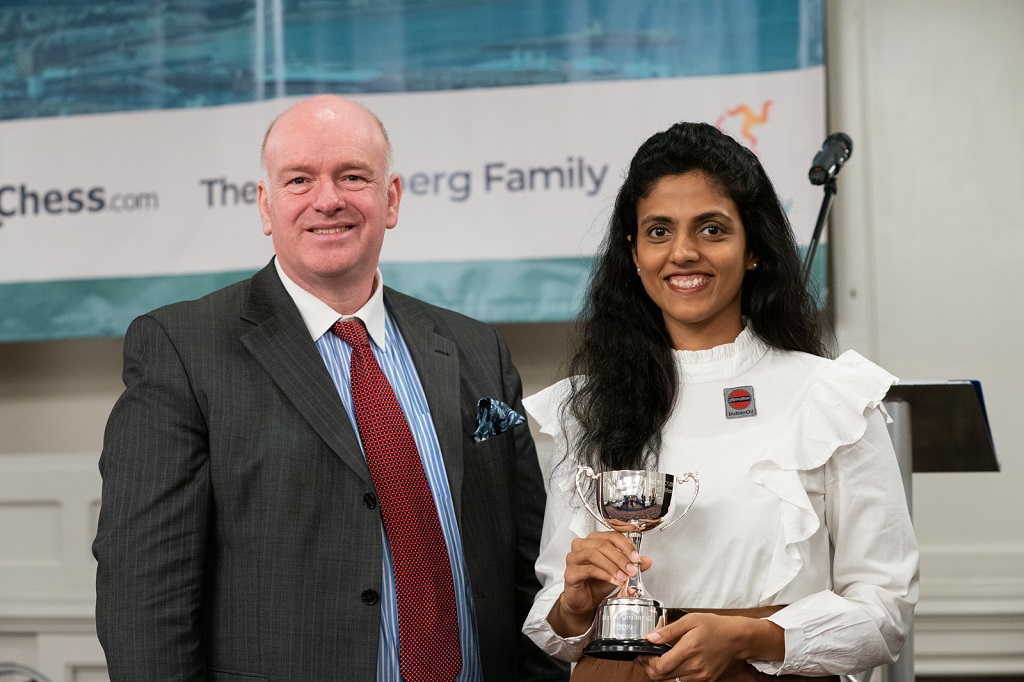
Harika Dronavalli was first among the women participants in 2019 | Photo: Maria Emelianova / chess.com
Firouzja and Lei outright winners in 2021
The second edition took place in October 2021 in Riga, after being moved from the Isle of Man due to the pandemic. Despite restrictions in place in Latvia at the time, the event was granted permission to proceed. Several top seeds, including Magnus Carlsen and Hikaru Nakamura, withdrew, leaving a field of 108 players for the open tournament.
Alireza Firouzja, aged 18 at the time, finished first with 8 points. Fabiano Caruana again had a remarkable performance and finished as runner-up a half point behind. Both qualified for the 2022 Candidates Tournament. The next highest scorers, including Grigoriy Oparin, Yu Yangyi, Vincent Keymer, Maxime Vachier-Lagrave, Alexandr Predke and Alexei Shirov, earned qualification for the 2022 FIDE Grand Prix.
This edition used a slightly different tiebreak system from 2019. Buchholz Cut-1 served as the first criterion, followed by Buchholz, Sonneborn-Berger and direct encounter.
The women’s tournament was held for the first time as a stand-alone event, running alongside the open section. Fifty players competed, selected through rating lists, nominations and wildcards. Some of the top-ranked players, such as women’s world champion Ju Wenjun, Aleksandra Goryachkina and Humpy Koneru, did not take part.
Lei Tingjie won the inaugural Women’s Grand Swiss with an astounding 9/11 score, thereby qualifying for the 2022 Women’s Candidates Tournament.
The introduction of the women’s event established a parallel qualification route, as part of FIDE’s attempt to place women’s chess on equal footing with the open circuit.
In this insightful video course, Grandmaster David Navara shares practical advice on when to calculate deeply in a position — and just as importantly, when not to.
Free sample video: Introduction
Free sample video: Invisible moves
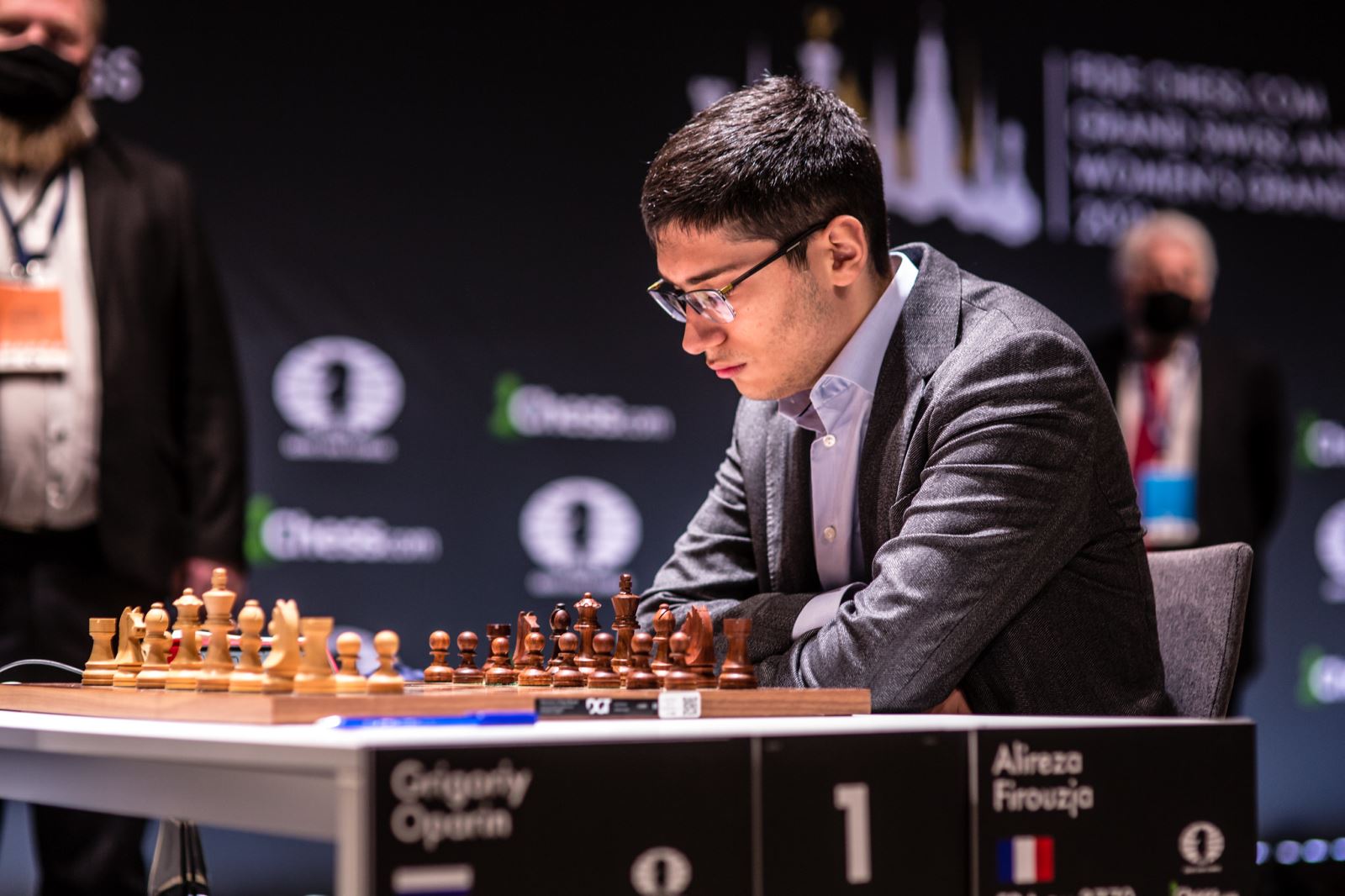
Alireza Firouzja entered the final round with a half-point lead over Fabiano Caruana and Grigoriy Oparin – a draw with black against Oparin was good enough for outright victory | Photo: Anna Shtourman
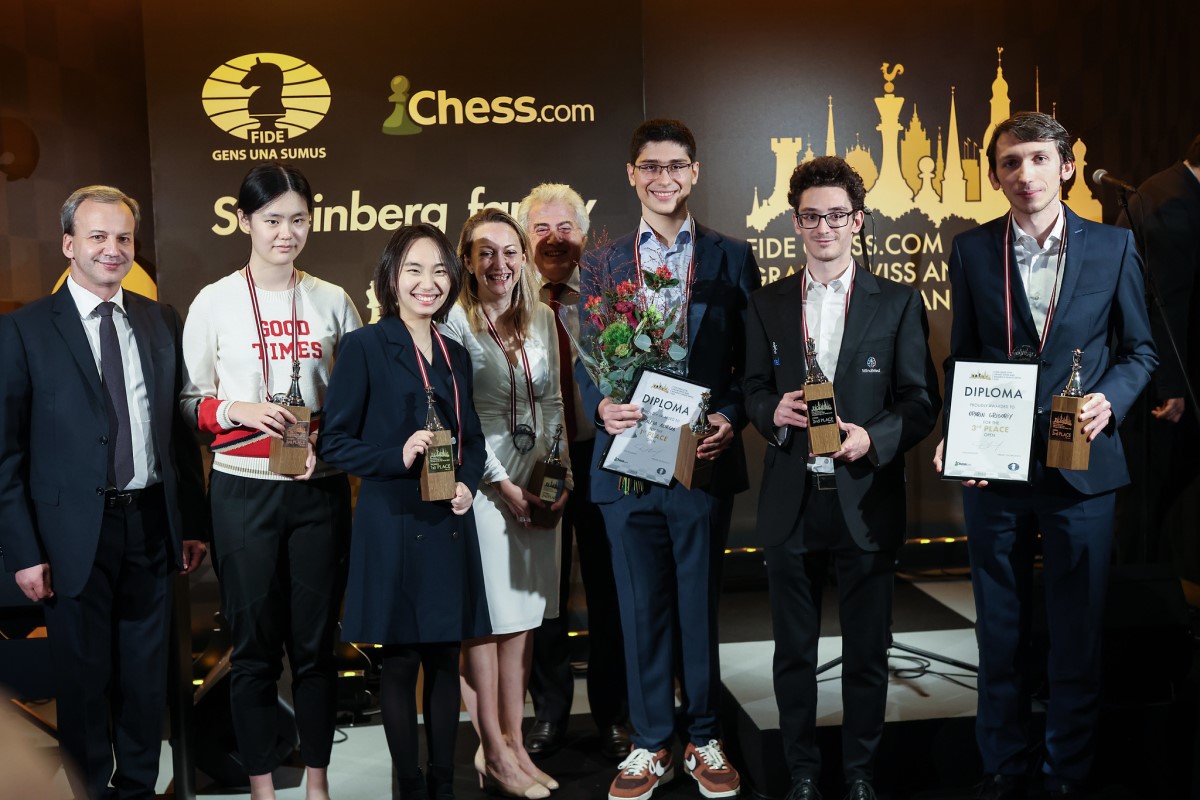
Smiling winners in Riga – Zhu Jiner, Lei Tingjie, Elisabeth Paehtz, Alireza Firouzja, Fabiano Caruana and Grigoriy Oparin | Photo: Mark Livshitz
Vidit and Vaishali demonstrate Indian power in 2023
The Grand Swiss returned to the Isle of Man in October 2023, with the open and women’s events played side by side. The venue was again the Royal Hall of the Villa Marina in Douglas. The open section had 114 participants, while the women’s field featured 50 players.
Vidit Gujrathi won the open tournament outright, with 8½ points, securing qualification for the 2024 Candidates Tournament. Hikaru Nakamura finished second with 8 points and also advanced to the Candidates. The tiebreak rules, beginning with average rating of opponents, were not needed to separate the top two players.
The rest of the field included many established names, but the clearest outcome was the two qualification spots taken by Vidit and Nakamura. The schedule included 11 rounds with a rest day after the sixth round, consistent with earlier editions.
The women’s event concluded with a clear victory for Vaishali Rameshbabu, who, like Vidit in the open, scored 8½ points. Anna Muzychuk finished second and Tan Zhongyi third. Vaishali qualified for the 2024 Women’s Candidates, while Tan also earned a spot as Muzychuk was already qualified – Tan barely got the spot, as she tied with underdog Batkhuyag Munguntuul with 7½ points each but had a better tiebreak score.
This gave India another major result in women’s chess, with Vaishali joining the Candidates for the first time. Tan’s qualification maintained her presence among the top contenders.
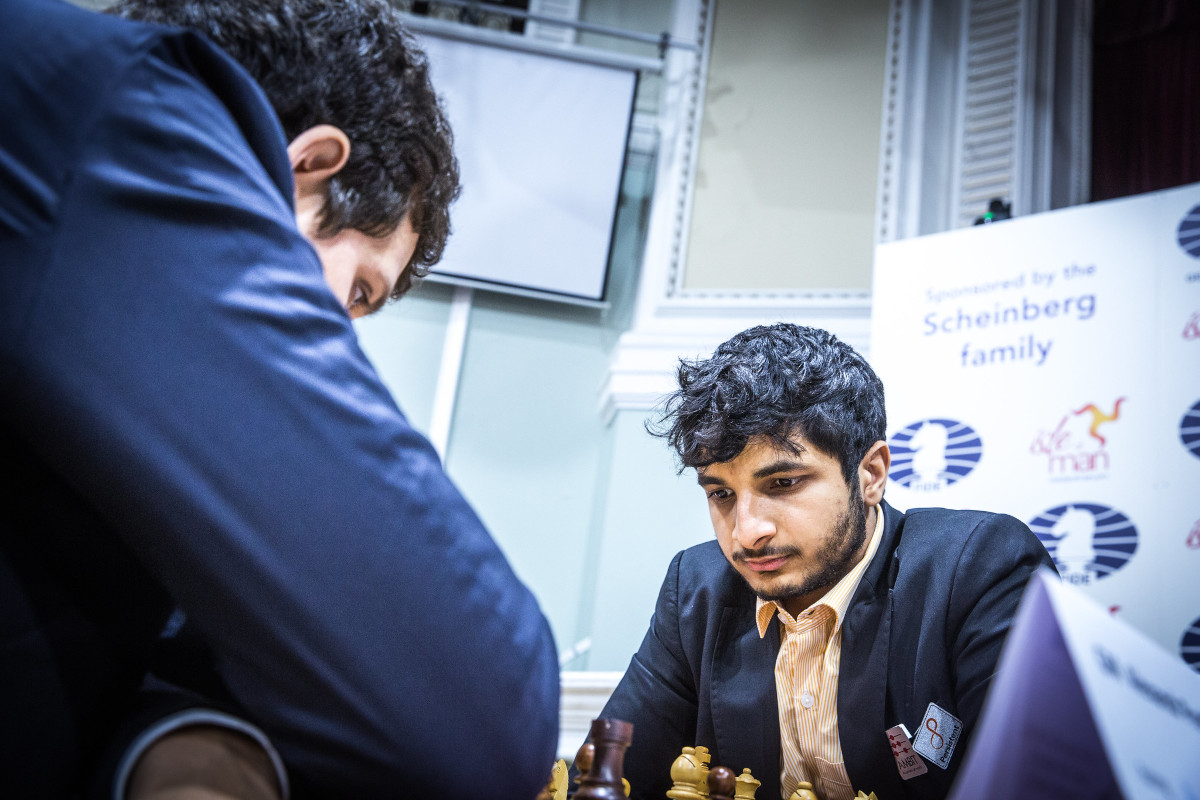
Vidit Gujrathi obtained a crucial 47-move victory over Alexandr Predke in the final round | Photo: Anna Shtourman
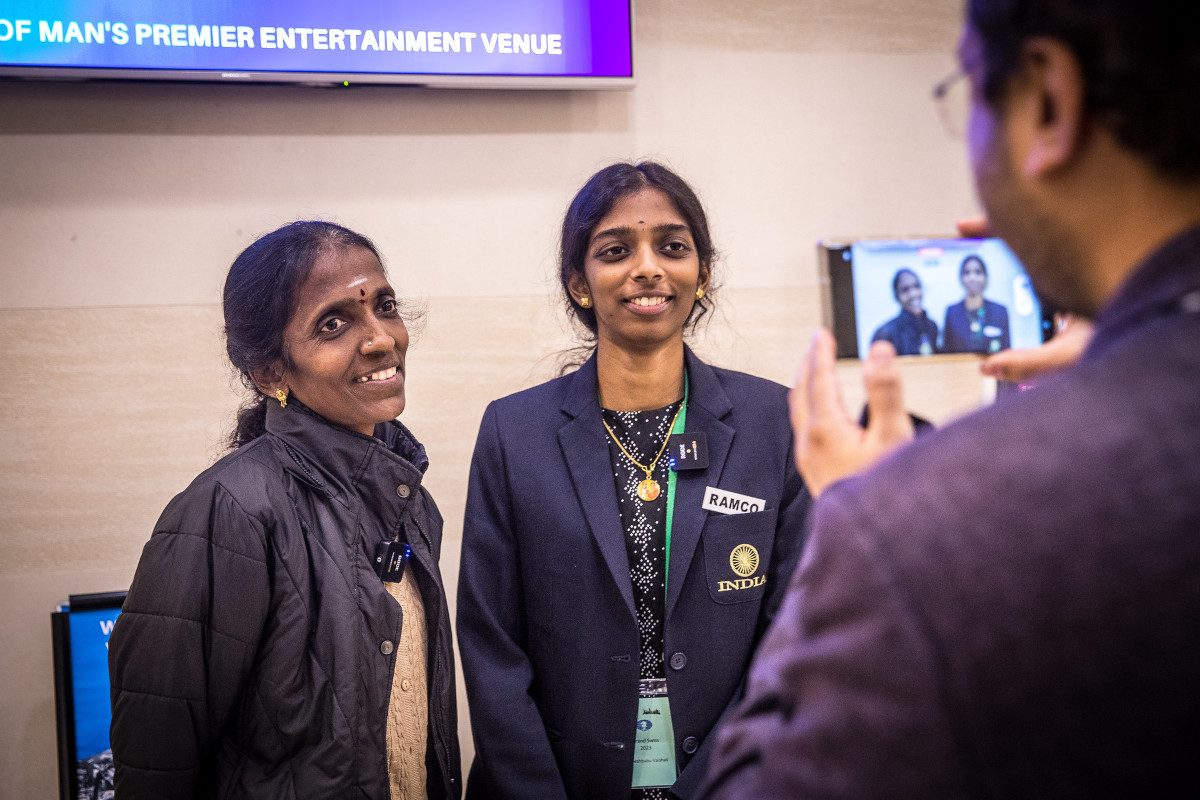
Permanent support – Vaishali Rameshbabu and her mom | Photo: Anna Shtourman
